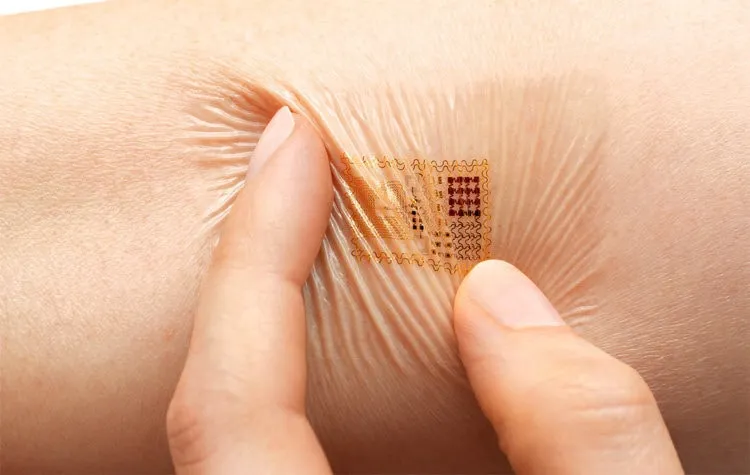Epidermal electronics represent a cutting-edge development in wearable technology, offering new ways to monitor and manage health through devices that adhere directly to the skin. This article explores how these thin, flexible electronics are revolutionizing patient care and health monitoring.
How Epidermal Electronics Work
Integration with the Skin
Epidermal electronics are designed to be lightweight and conform to the contours of the skin, making them barely noticeable to users. They function as an interface between the body and digital health monitoring systems, providing continuous health data without disrupting daily activities.
Monitoring Capabilities
These devices can monitor a wide range of physiological signals, such as heart rate, blood pressure, sweat analysis, and even brain activity, providing a comprehensive view of an individual’s health in real time.
Subscribe for Free for More Health Blog Articles
Impact on Healthcare
Early Detection of Health Issues
The continuous monitoring offered by epidermal electronics allows for the early detection of potential health issues, enabling timely intervention and preventing more serious symptoms.
Enhancing Patient Comfort
By eliminating the need for frequent hospital visits and invasive monitoring tools, these devices greatly enhance user comfort and allow for longer-term health tracking in a non-intrusive manner.
Taking Action: Incorporating Epidermal Electronics into Healthcare
- Stay Informed: Healthcare providers and users should stay updated on the latest developments and availability of epidermal electronic devices.
- Consult Healthcare Professionals: Before using such technologies, it is important to consult with a healthcare professional to ensure they are suitable for your specific health needs.
- Follow Data Privacy Guidelines: Users should ensure that their data is handled securely, respecting privacy and adhering to relevant regulations.
Conclusion
Epidermal electronics are set to transform the landscape of healthcare monitoring, making it more accessible, less invasive, and highly efficient. As this technology continues to evolve, its integration into everyday healthcare practices looks increasingly promising.
This blog post aims to be informational and should not replace professional medical advice. Always consult with a healthcare provider for personalized advice.



